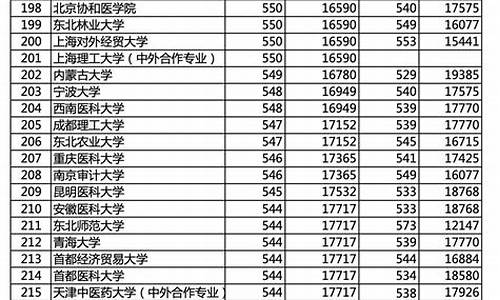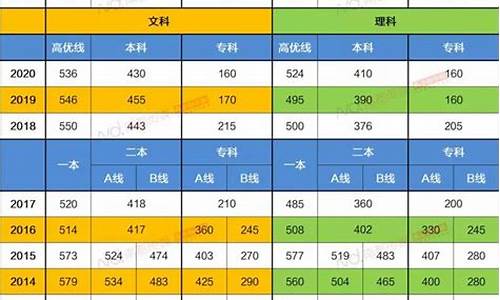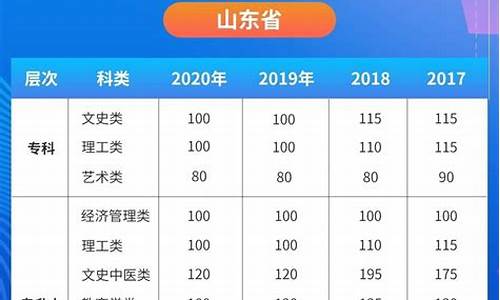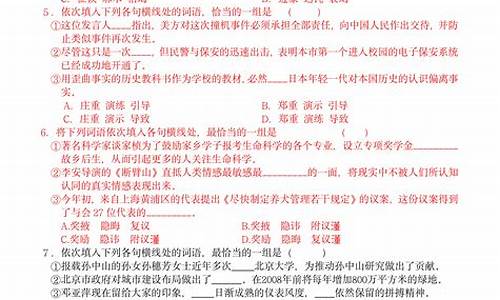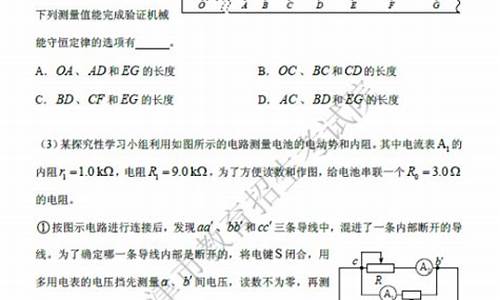2017高考江苏英语题目-2017江苏英语高考卷
1.江苏2017高考应届理科生,请问英语怎样能从85提高到105分?我完形填空正
2.2017年高考英语备考:关系代词副词的区别
3.2017高考英语口语:do的口语用法归纳
江苏2017高考应届理科生,请问英语怎样能从85提高到105分?我完形填空正

8个月完全能做到。1.每天两篇完形,四篇阅读,这是最基本的。2.做完改正后将完形答案填回去,还是不会的地方要弄明白,将完形中不会的词查出来积累到笔记本上,每天早上可以将作的完形读两遍,体会一下语境。
3.阅读理解要回扣原文,每道题要在原文中找到出处。也可以将出现频率高的词查出来积累到笔记。
4.词汇量很重要,单词不知道你们怎么记得。
5.对英语基础不好的人来说想提英语要投入大量时间。不要心存侥幸。当然一旦提上来,英语反而是最轻松的一门课。
2017年高考英语备考:关系代词副词的区别
一、 关系代词和关系副词的区别
1、关系代词(that, who, whom, whose, which)所代替的先行词是人或物的名词或代词,并在句中充当主语、宾语、定语等成分。
例1. Is he the man who/that wants to see you?(who / that在从句中作主语,指人)
例2. He is the man whom/ that I saw yesterday.(whom / that在从句中作宾语,指人)
例3. They rushed over to help the man whose car had broken down.(whose在句中作定语,指人)
例4. Please pass me the book whose (of which) cover is green.(whose在句中作定语,指物。若指物,它还可以同of which互换)
例5. The package (which / that) you are carrying is about to come unwred. 你拿的包快散了。(which / that在句中作carry的宾语,指物)
2、关系副词(when, where, why, that)可代替的先行词是时间、地点或理由的名词,在从句中作状语。关系副词when, where, why的含义相当于"介词+ which"结构,因此常常和"介词+ which"结构交替使用。
例6. Beijing is the place where (in which) I was born.
例7. Is this the reason why (for which) he refused our offer?
例8. His father died the year (that / when / in which) he was born.
例9. He can’t find the place (that / where / in which) he lived forty years ago.
二、 判断用关系代词和关系副词
方法1: 用关系代词,还是关系副词完全取决于从句中的谓语动词。及物动词后面无宾语,就必须要求用关系代词;而不及物动词则要求用关系副词。请改错:
1. This is the mountain village where I visited last year.
2. I will never forget the days when I spent in the countryside.
习惯上总把表地点或时间的名词与关系副词 where, when联系在一起。此两题错在关系词的误用上。句1和句2的where, when都应改为which.。
方法2: 准确判断先行词在定语从句中的成分(主、谓、宾、定、状),根据第一点(区别),也能正确选择出关系代词/关系副词。
例10.This museum is ___ you visited a few days age?
A. where B. that C. on which D. the one
例11. This is the museum ____ the exhibition was held.
A. where B. that C. on which D. the one (答案:例1 D,例2 A)
在例10中,所缺部分为宾语,而where, that, on which都不能起到宾语的作用,只有the one既做了主句的表语,又可做从句的宾语,可以省略关系代词,所以应选D。
而例11中, 主、谓、宾俱全,从句部分为句子的状语表地点,既可用副词where,又因 in the museum词组,可用介词in + which 引导地点状语。而此题中,介词on 用的不对,所以选A。
关系词的选择依据在从句中所做的成分,先行词在从句中做主、定、宾语时,选择关系代词 (who, whom, that, which, whose); 先行词在从句中做状语时,应选择关系副词 ( where 地点状语,when 时间状语,why 原因状语)。
方法3:当先行词是all, everything, anything, nothing,the one, much, few, any, little等,或先行词是形容词级时,或在there be 句型中,或当先行行词既有人又有物时,关系代词用that, 而不用which。
例12. Finally, the thief handed everything that he had stolen to the police.
例13. The soldiers and their guns that we sent to the front were lost.
方法4:在引导非限定性定语从句时,和在介词后不能用that,应用which。
例14.(错) The tree, that (改为which)is four hundred years old, is very famous here.
例15.We depend on the land from which we get our food.
2017高考英语口语:do的口语用法归纳
高考英语口语:do的口语用法归纳
一、do sb a four的用法
该结构表示“帮助某人”,也可说成do a four for sb,注意其中有不定冠词。如:Would you do me a four please? 请你帮我个忙,好吗?t; mso-char-indent-count: 2.0">He is always ready to do a four for his classmates. 他总是乐于帮助同学。以下各句均可表示“劳驾请把窗户打开”。注意,当 four 后有定语修饰时,其前习惯上要用定冠词: Do me a four and open the window. Do me a four by opening the window. Do me a four—open the window, please. Do me the four to open the window. Do me the four of opening the window.
二、do sb good的用法
该结构表示“对某人有益或有好处”,其中的 good 为不可数名词。如: Exercise will do you good. 运动对你会有好处。Eat more fruit—it will do you good. 多吃水果,这对你有好处。A week’s vacation will do you a lot of good. Go on with the treatment. It is doing you good. 你要继续进行这种疗法。它对你是有效的。
三、do sb harm 的用法
该结构表示“对某人有害”,其中的 harm 为不可数名词。如:Smoking does harm to your health. 吸烟对你的身体有害。A few late nights never did anyone any harm. 熬几个晚上的夜对人绝无害处。Whether it will do us harm remains to be seen. 是否对我们有害还要看一看。Whether it will注:也可说成 do harm to sb。如:Such books do great harm to young people.=Such books do young people great harm. 那样的书对年青人危害很大。
四、do sb honour 的用法
该结构也可说成do honour to sb,它有以下两个方面的意思:1. 对某人表示敬意或纪念。如:They did honour to the dead. 他们向死者致敬。2. 给某人带来荣誉或使某人受到尊敬。如: His contributions to science do honour to our country. 他在科学上的贡献为祖国增了光。We attended his birthday party to do him honour. /We attended his birthday party to do honour to him. 我们参加了他的生日晚会以表示对他的敬意。注意:do sb the honour of doing [to do] sth 的意思是do sb the honour of doing [to do] sth “给某人面子做某事”“给某人做某事的荣幸”。如:Would you do me the honour of dancing with me?=Would you do me the honour to dance with me? 能请你跳曲舞吗?
五、do sb a kindness的用法
该结构表示“好心地为某人做某事”“帮某人的忙”,其中的 kindness 为可数名词。如:Will you do me a kindness? 你愿帮我个忙吗?He has done me many kindness. 他帮了我不少忙。
六、do sb a service的用法
该结构表示“帮某人的忙”,注意其中有不定冠词。如:Will you do me a service? 帮我个忙好吗? You did me a great service by telling me the truth. 你把实情告诉我,这对我很有好处。
七、do sb wrong的用法该结构表示“冤枉某人”“冤屈某人”,wrong 前通常不用冠词,但若有形容词修饰,也可用不定冠词修饰。如:You did me wrong. 你冤枉我了。You did me wrong. He did her a terrible wrong. 他真的是太冤屈她了
声明:本站所有文章资源内容,如无特殊说明或标注,均为采集网络资源。如若本站内容侵犯了原著者的合法权益,可联系本站删除。

